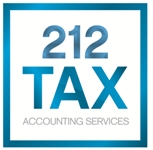One of the most common questions tax advisors get is whether people usually end up paying more or less than they were expecting to in taxes to the IRS each year. Generally, those who manage a close estimate are the ones who keep accurate records about their finances throughout the year. Here are some tips for accurately anticipating how much you’ll owe in taxes.
Understand different taxes and how they affect your pay.
The first step to anticipating how much you’ll owe (or how much you’ll be refunded) is understanding the different taxes that affect your pay. If you receive a pay stub as an employee of a company, you’ll be taxed federal and possible state income tax as well as social security and medicare taxes. The only nonrefundable taxes are social security and medicare taxes, and the amount of income tax you receive back from the government (if any) is derived from these numbers.
Adjust your withholdings when necessary.
As an employee whose company withholds taxes, ideally you want to break even at the end of the year and own nothing and get no refund from the IRS. This doesn’t always end up being the case as deductions and expenses are different for everyone and can vary the amount owed each year. If you anticipate a large refund or a large bill at the end of the year, you might need to adjust your withholdings with your employer.
Create an effective system for recording income and expenses.
By far, the best way to anticipate how much you’ll owe in taxes is to have an effective system of recordkeeping in place. Whether you use a trusted tax advisor or you file your taxes on your own, you should get in the habit of always keeping track of your expenses and income. File your recipes for deductible expenses, and don’t hesitate to reach out to a tax expert about the best system for your situation.
Anticipating your taxes
While there are a number of tax calculators available on the internet and through banks, the best thing you can do to prepare accurately for your taxes is to simply keep clear records all year. If you’re worried about your ability to anticipate your taxes this year, speak to a qualified tax advisor about your options and how to create a plan for this tax season.


